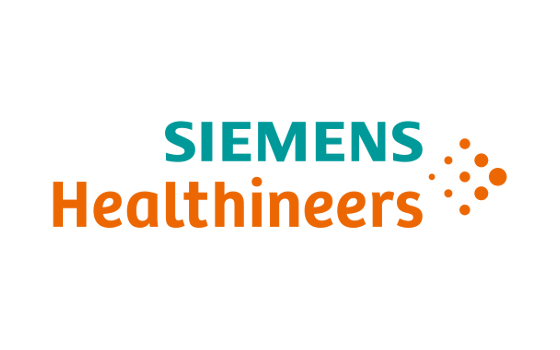 The University Hospital Giessen is the first hospital in Germany where a robotic system assists in a minimally invasive procedure to place a stent into a narrowed coronary artery to reopen it. This percutaneous coronary intervention (PCI) was carried out by the team of Prof. Holger Nef, Deputy Clinical Director Medical Clinic I, Cardiology and Angiology, University Giessen. To control interventional devices, doctors use the endovascular robotic system, CorPath® GRX (1) from Corindus, a Siemens Healthineers company, together with an Artis angiography system from Siemens Healthineers.
The University Hospital Giessen is the first hospital in Germany where a robotic system assists in a minimally invasive procedure to place a stent into a narrowed coronary artery to reopen it. This percutaneous coronary intervention (PCI) was carried out by the team of Prof. Holger Nef, Deputy Clinical Director Medical Clinic I, Cardiology and Angiology, University Giessen. To control interventional devices, doctors use the endovascular robotic system, CorPath® GRX (1) from Corindus, a Siemens Healthineers company, together with an Artis angiography system from Siemens Healthineers.
"Detailed imaging in combination with robotic-assisted intervention can provide increased precision to minimally invasive therapy. Especially complex procedures can be standardized and potentially provide better clinical results. I am very pleased that we were able to successfully use our imaging system and endovascular robotic platform at the University Hospital Giessen and Marburg in a procedure," said Doris Pommi, General Manager Cardiovascular Care at Siemens Healthineers.
Corindus' robotic system allows physicians to precisely control catheters, guidewires, balloons and stents with the help of integrated imaging for minimally invasive procedures. The doctor does not have to be physically next to the angiography table as usual, but can control the procedure via the system’s control module and is thus exposed to less radiation.
"The robotic system allows the precise positioning of interventional devices. This is crucial for the procedural success of the PCI procedure and can help improve long-term patient benefits. If coronary lesions are not fully covered by stents, this is a significant risk factor for follow-up interventions caused by re-stenosis," said Prof. Christian Hamm, Clinic Director Medical Clinic I, Cardiology/Angiology, University Giessen.
Technical advances in interventional cardiology can make it possible to successfully perform even more complex procedures routinely, like multi-vascular diseases, main stem stenosis, bifurcation stenosis or even re-openings of chronic closures. "Especially in these interventions, precision through robotic support, as well as the reduction of radiation exposure, can be of fundamental importance," said Prof. Holger Nef.
Coronary heart disease is one of the most common cardiovascular diseases in Western industrialized nations. Its consequences, such as acute heart attacks, are among the most common causes of death in Germany. In the treatment of acute and chronic coronary syndrome, PCI with stent implantation has established itself as the gold standard and is recommended in the European treatment guidelines.
About Siemens Healthineers
Siemens Healthineers AG (listed in Frankfurt, Germany: SHL) is shaping the future of Healthcare. As a leading medical technology company headquartered in Erlangen, Germany, Siemens Healthineers enables healthcare providers worldwide through its regional companies to increase value by empowering them on their journey towards expanding precision medicine, transforming care delivery, improving the patient experience, and digitalizing healthcare. Siemens Healthineers is continuously developing its product and service portfolio, with AI-supported applications and digital offerings that play an increasingly important role in the next generation of medical technology. These new applications will enhance the company’s foundation in in-vitro diagnostic, image-guided therapy, and in-vivo diagnostics. Siemens Healthineers also provides a range of services and solutions to enhance healthcare providers ability to provide high-quality, efficient care to patients. In fiscal 2019, which ended on September 30, 2019, Siemens Healthineers, which has approximately 52,000 employees worldwide, generated revenue of €14.5 billion and adjusted profit of €2.5 billion.
About Corindus
Corindus, a Siemens Healthineers company, is a global technology leader in robotic-assisted vascular interventions. The Company’s CorPath® platform is the first FDA-cleared medical device to bring robotic precision to percutaneous coronary and vascular procedures. CorPath GRX is the second-generation robotic-assisted technology offering enhancements to the platform by adding important key upgrades that increase precision, improve workflow, and extend the capabilities and range of procedures that can be performed robotically. We are focused on developing innovative robotic solutions to revolutionize treatment of emergent conditions by providing specialized and timely medical care to patients around the world.1. The products/features (mentioned herein) are not commercially available in all countries. Their future availability cannot be guaranteed. Detailed information is available from the local Siemens Healthineers organization.